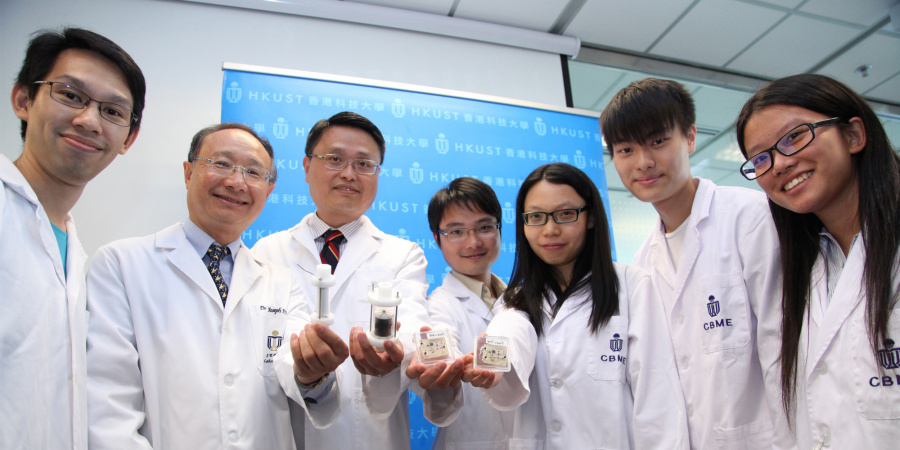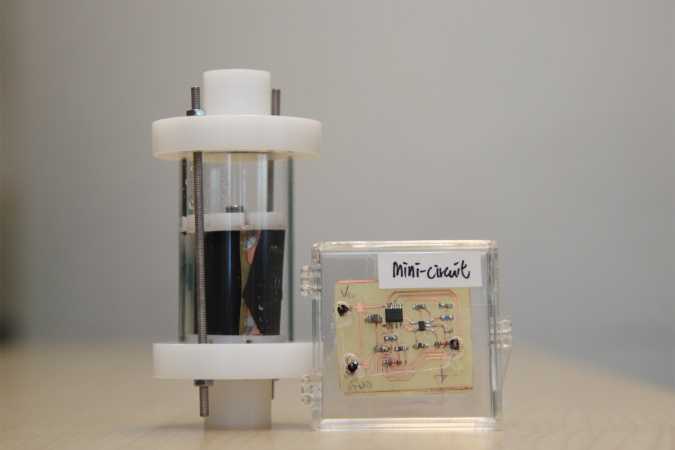HKUST Develops Mini Pulsed Electric Field Device for Water Disinfection
The Hong Kong University of Science and Technology (HKUST) has invented a mini pulsed electric field device which could reduce more than 90 percent of bacteria in the running tap water in a few seconds. The technology is a possible way to help control the spread of water-borne diseases such as Legionellosis caused by microbial contamination of water.
The research was carried out by a collaborative team led by Prof King-Lun Yeung, Associate Dean of the School of Engineering, Professor of Department of Chemical and Biomolecular Engineering and Division of Environment, and Prof Joseph Kwan, Director of Health, Safety and Environment Office and Adjunct Professor of Division of Environment. Prof Joseph Kwan was recently elected as Fellow by the American Industrial Hygiene Association (AIHA) for his significant contributions to the field of industrial safety, hygiene and infectious control.
Microbiological water pollution is known to be a cause of water pollution. Some common waterborne pathogens are Pseudomonas, Aeromonas, Mycobacterium and Legionella bacteria. There have been a number of cases of Legionella bacteria being detected in new buildings in Hong Kong. Water disinfection technologies such as chlorination, ozonation, heating and reverse osmosis are now widely used in drinking water disinfection. However, high concentrations of chlorine produce pungent smell and unwanted toxic by-products; while heating and reverse osmosis can be effective but energy consuming and expensive.
The new pulse electric field disinfection technology can kill the bacteria by damaging their microbial cell wall with the electric field and render them non-infective. Current technology uses high-input voltage pulse electric field as the key disinfection parameter, which can use up to a hundred thousand volt and create a potential electrical hazard to operators. The device invented by the HKUST research team is designed to use low-input voltage. The portable battery-powered device can be installed at home and any public tap water system. It is cost-effective, environmentally-friendly and safe for the point-of-use disinfection of tap water. The research team is currently conducting an on-site testing in a public hospital.
Prof Kwan is an expert researcher in infection control for 30 years, promoting industrial safety and hygiene in different areas including occupational health and safety, environmental management, fire safety, biology, chemistry and radiation safety. He has applied the new technologies in the medical sector, controlling the spread of contagious diseases. During the outbreak of the Severe Acute Respiratory Syndrome (SARS), he proposed tackling the virus from its origin, and curbed its spreading through local exhaust ventilation. The device he created is still in use today at the chest clinics under the Department of Health and the Infectious Disease Center under the Hospital Authority. Together with Prof King-Lun Yeung, they developed a smart anti-microbial coating which has a long-lasting effect against a wide range of microbe, the coating is now used by eight public hospitals in Hong Kong. In another research, he worked with Prof Christopher Chao, Head of the Department of Mechanical and Aerospace Engineering, on aerosol transmission and infection risk. The research has since influenced the design of the ventilation systems in buildings and aircrafts.
Prof Kwan has been promoting a healthy and safety culture at HKUST. With his support, the University has received two awards from the National Safety Council, USA, for outstanding organization and performance in safety management and the setup of a multi-purpose Eco-Park for teaching and research to promote sustainability. Prof Kwan was recently elected as Fellow by the AIHA for his significant contributions. He is the first expert in the Greater China area to earn this prestigious honor.


